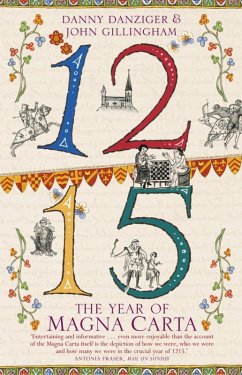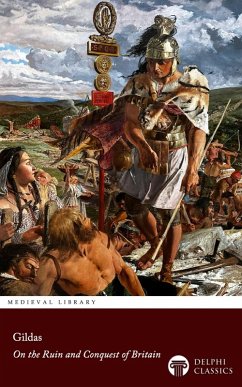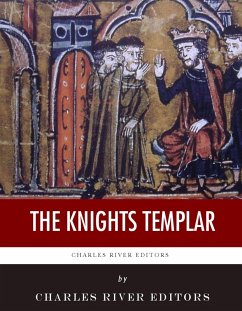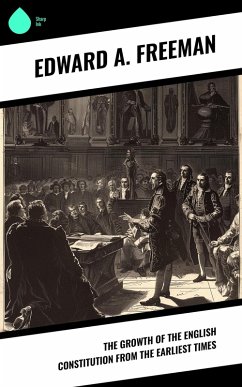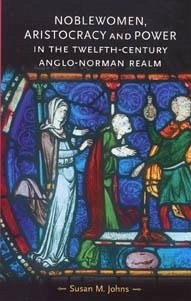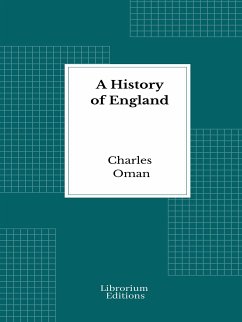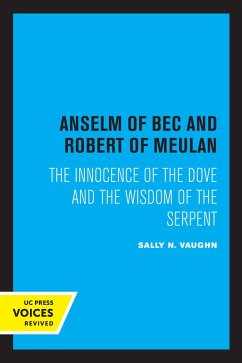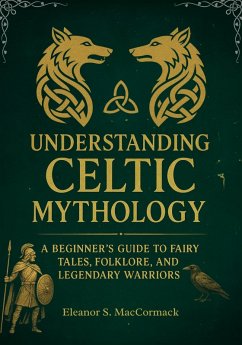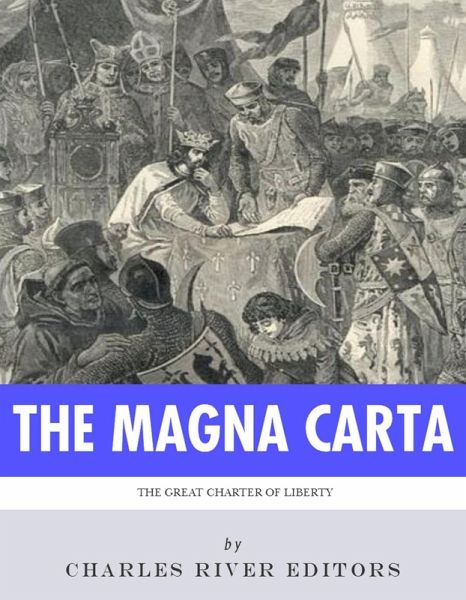
The Magna Carta (eBook, ePUB)
The Great Charter of Liberty
Redaktion: Charles River Editors

PAYBACK Punkte
0 °P sammeln!
"To no man will we sell, or deny, or delay, right or justice." - Magna CartaThe West is home to the world's oldest and democracies, and though these democratic governments take many different forms, from America's republican system to Britain's parliamentary system, every democracy and the principles behind it have their origins in the Magna Carta.A singularly consequential document in Western civilization, the Magna Carta (Latin for "Great Charter") was a document consisting of 37 articles signed in June 1215 in Runnymede near Windsor Castle between the barons of the English aristocracy and K...
"To no man will we sell, or deny, or delay, right or justice." - Magna Carta
The West is home to the world's oldest and democracies, and though these democratic governments take many different forms, from America's republican system to Britain's parliamentary system, every democracy and the principles behind it have their origins in the Magna Carta.
A singularly consequential document in Western civilization, the Magna Carta (Latin for "Great Charter") was a document consisting of 37 articles signed in June 1215 in Runnymede near Windsor Castle between the barons of the English aristocracy and King John, the absolute monarch. The document embodies a series of written promises between the king and his subjects that he, the king, would govern England and deal with its people according to the customs of feudal law. For the first time, the notion of a king's absolute power had been successfully challenged without force of arms.
Today the Magna Carta is acknowledged as the founding legal instrument of English common law and thus much of the legal principles of the West, an ironic legacy given that parts of the Magna Carta were distinctly intended to preserve the power of the aristocracy against the interests of the ordinary people. At the same time, however, the Magna Carta was an attempt by the barons to prevent King John from abusing his power while his subjects endured lawlessness, cruel and unjust laws, severe penalties and exorbitant taxation, thus fairly earning its reputation as a charter for individual rights against encroachment by state power. The sovereign ruler was now also subject to law, a previously foreign concept.[1]
As a cherished and vital part of the common law and the source of both civil and criminal procedure in the West, the Magna Carta is not just the "law of the land" but also "a sacred text, the nearest approach to an irrepealable, 'fundamental statute' that England has ever had." Even scholarship that has resisted the overarching importance of the Magna Carta has had to concede that the Charter put "resistance to arbitrary government on a legal basis" with all the force of mandate, not just a moral idea or a wise notion. These scholars argue that the romantic view of the Magna Carta as a cure-all should be resisted: "The king had acquired a power which he might abuse, and the acts of the reign of John are sufficiently on record to show how much a bad king could do before he became intolerable." These scholars also counsel, "Those who drew up the Great Charter never pretended to be formulating a syllabus of fundamental principles, nor was it a code any more than it was a declaration of rights. It was a rehearsal of traditional principles and practices which had been violated by John, and the universality of its scope is a measure of the king's misgovernment."
Most of the content of the Magna Carta was drafted by Archbishop Stephen Langton and the most powerful Barons of England. On June 10, 1215, King John signed the document which was originally called the "Articles of the Barons." The barons renewed the Oath of Fealty to King John on June 15, 1215. The royal chancery then replicated a formal royal grant, based on the compact at Runnymede, which became known as Magna Carta. Copies of this Magna Carta were circulated to bishops, sheriffs and other very important persons across the land. Apart from the weights and measures requirement stipulating uniformity across England, the Charter also required that the Catholic Church must free from royal interference, especially in the election of bishops; that no taxes except the regular feudal dues were to be levied, except by the consent of Parliament; and that a right to due process of law including trial by jury had to be preserved.
The West is home to the world's oldest and democracies, and though these democratic governments take many different forms, from America's republican system to Britain's parliamentary system, every democracy and the principles behind it have their origins in the Magna Carta.
A singularly consequential document in Western civilization, the Magna Carta (Latin for "Great Charter") was a document consisting of 37 articles signed in June 1215 in Runnymede near Windsor Castle between the barons of the English aristocracy and King John, the absolute monarch. The document embodies a series of written promises between the king and his subjects that he, the king, would govern England and deal with its people according to the customs of feudal law. For the first time, the notion of a king's absolute power had been successfully challenged without force of arms.
Today the Magna Carta is acknowledged as the founding legal instrument of English common law and thus much of the legal principles of the West, an ironic legacy given that parts of the Magna Carta were distinctly intended to preserve the power of the aristocracy against the interests of the ordinary people. At the same time, however, the Magna Carta was an attempt by the barons to prevent King John from abusing his power while his subjects endured lawlessness, cruel and unjust laws, severe penalties and exorbitant taxation, thus fairly earning its reputation as a charter for individual rights against encroachment by state power. The sovereign ruler was now also subject to law, a previously foreign concept.[1]
As a cherished and vital part of the common law and the source of both civil and criminal procedure in the West, the Magna Carta is not just the "law of the land" but also "a sacred text, the nearest approach to an irrepealable, 'fundamental statute' that England has ever had." Even scholarship that has resisted the overarching importance of the Magna Carta has had to concede that the Charter put "resistance to arbitrary government on a legal basis" with all the force of mandate, not just a moral idea or a wise notion. These scholars argue that the romantic view of the Magna Carta as a cure-all should be resisted: "The king had acquired a power which he might abuse, and the acts of the reign of John are sufficiently on record to show how much a bad king could do before he became intolerable." These scholars also counsel, "Those who drew up the Great Charter never pretended to be formulating a syllabus of fundamental principles, nor was it a code any more than it was a declaration of rights. It was a rehearsal of traditional principles and practices which had been violated by John, and the universality of its scope is a measure of the king's misgovernment."
Most of the content of the Magna Carta was drafted by Archbishop Stephen Langton and the most powerful Barons of England. On June 10, 1215, King John signed the document which was originally called the "Articles of the Barons." The barons renewed the Oath of Fealty to King John on June 15, 1215. The royal chancery then replicated a formal royal grant, based on the compact at Runnymede, which became known as Magna Carta. Copies of this Magna Carta were circulated to bishops, sheriffs and other very important persons across the land. Apart from the weights and measures requirement stipulating uniformity across England, the Charter also required that the Catholic Church must free from royal interference, especially in the election of bishops; that no taxes except the regular feudal dues were to be levied, except by the consent of Parliament; and that a right to due process of law including trial by jury had to be preserved.
Dieser Download kann aus rechtlichen Gründen nur mit Rechnungsadresse in A, B, BG, CY, CZ, D, DK, EW, E, FIN, F, GR, H, IRL, I, LT, L, LR, M, NL, PL, P, R, S, SLO, SK ausgeliefert werden.





